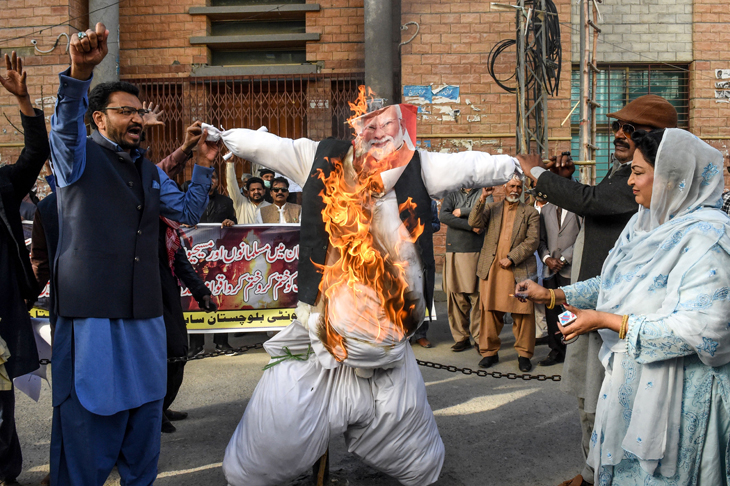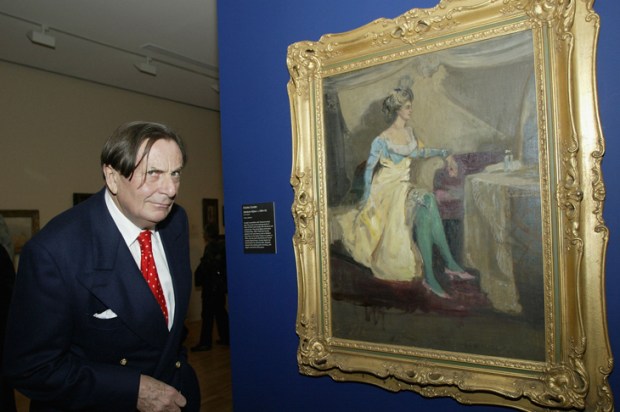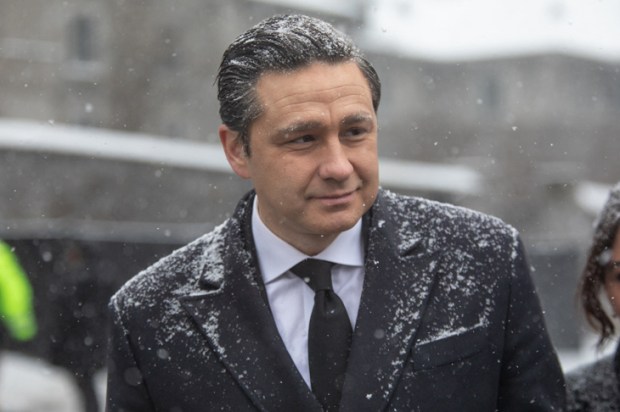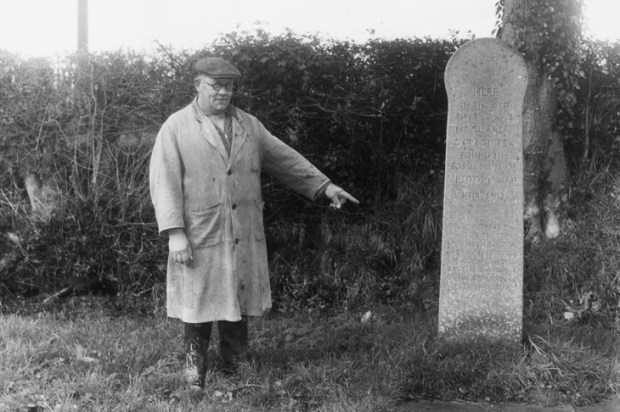I was in New Zealand at the height of the anti-nuclear sentiment that caused a rupture in the Anzus alliance in the mid-1980s. On one occasion, a visiting senior US official was assured by a senior NZ official that the anti-nuclear policy wasn’t anti-American, ‘just a moral issue’. ‘You expect me to be happy to realise that you brand my policy as immoral,’ he replied. ‘For us,’ he added, ‘the transcendental clash with the evil empire of the Soviet Union is the greatest moral issue of our time.’
As this incident shows, policy disagreements between people (individuals, groups, countries) can mask competing moral frameworks. Each side can see its beliefs grounded in moralism and therefore concludes the other is immoral. This has been played out in different countries on issues as diverse as abortions, cow slaughter, and honour killings (hence the word honour, the perversion which leads a man to kill his own young daughter for engaging in pre-marital sex or marrying someone from the wrong religion or caste). In foreign policy too, disagreements over Nato intervention in Kosovo in 1999, the Iraq war in 2003, the Falklands war in 1982, the conflict with Russia over Ukraine, the India-Pakistan conflict over Kashmir and many others: all entail clashes of competing moral principles as well as national interests.
More broadly, lifelong personal experiences and professional studies have sensitised me deeply to the dangers of framing policy disagreements in the language of morality, with the Covid years being the most recent example. When competing moral frameworks collide, therefore, it’s best to look for pragmatic and flexible solutions that can accommodate all points of view. By contrast, name-calling condemnation couched in the language of moral judgments always heightens the intensity of the disagreement and makes solutions more difficult to work through.
This is what we have become trapped in over the Voice. I have previously been critical of the Modi government’s efforts to dilute equality of citizenship for India’s Muslims. Before that, back in 2015, I had warned of the risk of Modi turning India into a Hindu Pakistan. I remain unshakeably wedded to the principle of equal citizenship and civic participation for all Australians. The Yes case rests essentially on the moral conviction that the Voice will entrench racial equality for Aborigines and the No case rests on the opposing principle that it will institutionalise inequality of citizenship in the constitution. Imagine an elderly couple with six grandchildren, two from a daughter and four from a son. The first two have one Aboriginal grandmother, the other four have none. The two will end up with a constitutional right to representation, above and beyond all other privileges, rights and responsibilities of citizenship, that is not available to their four cousins, based solely on the accident of identitarian ancestry. How is this not unfair, and how can it not create resentment in the family?
Having left India in 1971, I have also become familiar with anti-Indian and anti-Asian sentiment and policies, usually dressed up as serving some other larger social good. Fiji-Indians were cast as the villains in the 1987 coups in Fiji and became second-class citizens for ever after. More recently we have seen anti-Asian discrimination in admissions at US universities, now declared unconstitutional by the Supreme Court.
In effect Harvard and others got into a constitutional tangle by framing policies as if American society is a binary divide between whites and blacks, when the reality is a mosaic that also includes Hispanics and Asians. According to Students for Fair Admissions’ analysis, Asian applicants in the 90th academic percentile were losing out to whites in the 80th, Hispanics in the 60th and blacks in the 40th percentile of applicants. Harvard’s pretence that attempts to favour blacks and Hispanics don’t discriminate against Asians was disingenuous. That Harvard doesn’t believe Asians are inferior and bears them no animosity was no comfort to the Indo-American woman denied admission because of her skin colour in order to right a historic wrong for which she bore no responsibility.
Modern Australia is a stable and prosperous democracy that grants equal citizenship to everyone in a vibrant multicultural society. According to the 2021 census, Aboriginal and Torres Strait Islander people number around 812,000 in total, amounting to 3.2 per cent of the population. Around 4.6 million Australians are of Asian ancestry, including 1.4 million Chinese and 800,000 Indians and another 400,000 from the subcontinent. Yet Australia is out of step with the US, Canada and the UK when it comes to the public visibility of Asian-Australians in politics and among mainstream media commentators. One would not guess from their virtual absence in these sectors that they make up 17.4 per cent of the population. Debate over the Voice has been almost entirely bilateral, despite the demographic reality being trilateral. The views of non-Western migrant communities have been mostly silenced even though we bear no responsibility for past sins but do have equal stakes in the outcome. As with the examples of Fiji and Harvard, do the progressive liberals believe that we do not notice the unfairness; or that we should just suck it up; or is it simply that they do not care?
By the end of the Springboks rugby tour of New Zealand in 1981 (the last time I joined a protest), public opinion had swung around decisively against any future tour. The majority had not become opposed in principle as such. Rather, people concluded that no sporting contest was worth the price of divisions and bitterness generated by the tour, with too many friendships broken and families torn apart. An official history of the event from the Ministry of Culture, published in 2020, begins thus: ‘For 56 days… New Zealanders were divided against each other in the largest civil disturbance seen since the 1951 waterfront dispute’. This is also why I regret very much that the PM, in calling the referendum for a maximalist Voice, has condemned Australia to the ugly debate we can see unfolding. This guarantees that on the morning after the referendum, regardless of the outcome, nearly half of Australians will have their hearts broken in the firm belief that the other half is racist, either for rejecting the Voice or for approving it.
How Albanese believes this is the path to reconciliation, unity and social harmony is beyond me. By contrast, a simple Recognition in the preamble and a legislated Voice that could be redesigned or repealed if desired could have achieved both the symbolic goal and substantive results without the accompanying rancour.
Got something to add? Join the discussion and comment below.
Get 10 issues for just $10
Subscribe to The Spectator Australia today for the next 10 magazine issues, plus full online access, for just $10.
You might disagree with half of it, but you’ll enjoy reading all of it. Try your first month for free, then just $2 a week for the remainder of your first year.














Comments
Don't miss out
Join the conversation with other Spectator Australia readers. Subscribe to leave a comment.
SUBSCRIBEAlready a subscriber? Log in